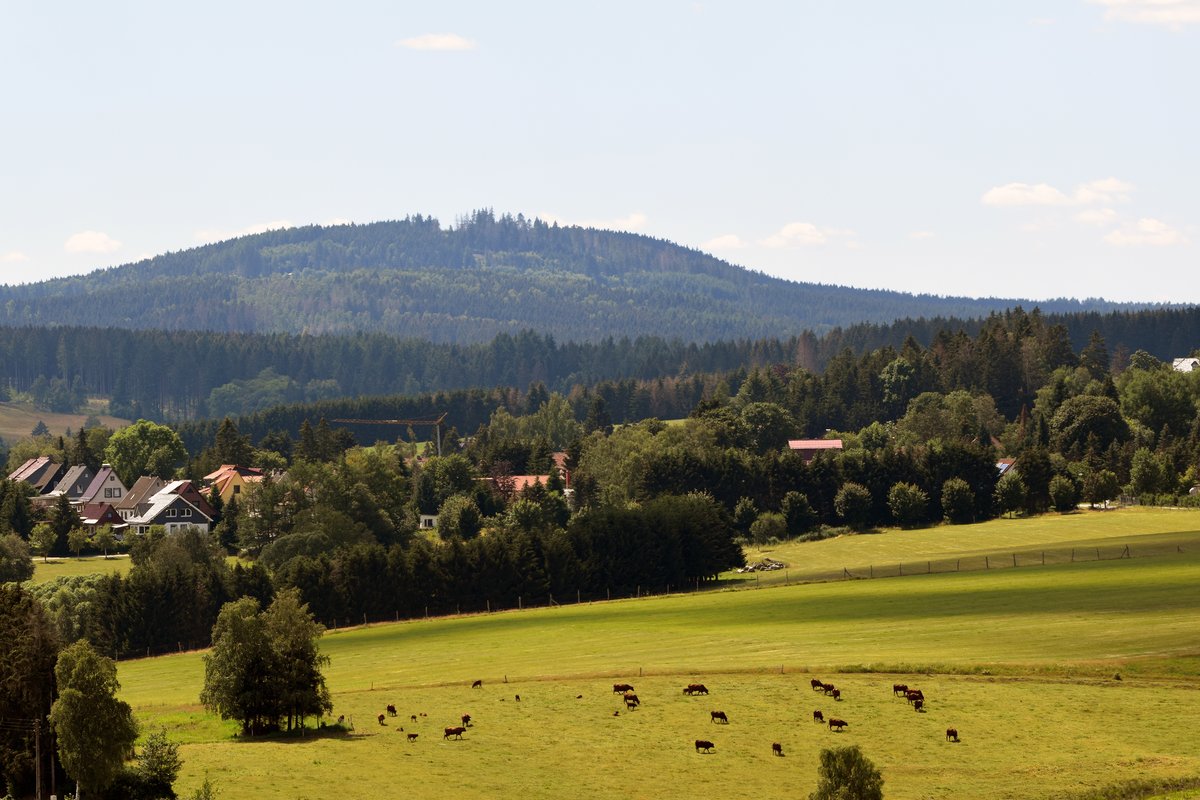Biodiversity and well-being
Biodiversity is dwindling rapidly, with serious consequences for the natural balance and human well-being. In a study published in the renowned journal People and Nature, "From biodiversity to health: Quantifying the impact of diverse ecosystems on human well-being," scientists led by BTU professor Dr. Klaus Birkhofer analyze research on the relationship between diversity and well-being.
"There is much evidence to suggest that biodiversity has a positive impact on ecosystem functioning, ecosystem functions and services in natural and agricultural landscapes," says Prof. Dr. Klaus Birkhofer, head of the BTU Chair of Ecology. "Less obvious and even controversial are the effects of this diversity on human well-being."
To fill this knowledge gap, researchers led by Polish scientist Prof. Dr. Werner Ulrich of Nicolaus Copernicus University, Toruń, are investigating the methodological difficulties of assessing and quantifying these effects.
"We have developed a conceptual framework that links different aspects of diversity, especially species and genetic richness, with ecosystem functions, ecosystem services and dysfunctions, and different aspects of well-being," he said. "Think of it this way: individual species perform very different functions, for example, as important predators in natural pest control. But the impact of losing these beneficial species is more than the sum of their functions, because species interact with all other species. We follow this insight in our approach to understand how, for example, farmers respond to the loss of these species. Is there increased use of pesticides? What are the consequences for human health?"
According to the researchers, a full understanding of ecological constraints on human well-being requires consideration of the balance between diversity effects, conflicting perceptions of well-being, and ecosystem dysfunction. "We need long-term socio-ecological research platforms to be able to collect relevant data on ecosystem functioning in relation to human well-being in space and time," Birkhofer concludes.
The publication is based on the findings of the EU research project "FUNPROD - The relationship between functional diversity and food production and quality under ecological intensification", coordinated by Prof. Dr. Klaus Birkhofer. In this project, international scientists are investigating the effects of changes in land use on various aspects of biodiversity and the resulting consequences for human health. "In recent years, it has become increasingly clear that we are losing species to human-induced environmental change faster than ever before," summarizes Prof. Birkhofer. "Currently, one in eight species worldwide are threatened with extinction. That we as humans are part of this environment is already being felt. The ongoing loss of species will lead to further consequences for human well-being. To understand these impacts, we as scientists need appropriate tools. We provide suggestions for a selection in our publication."
In the project, scientists* from the BTU are working with partners from Poland, France, Hungary, Slovakia and Spain in a synthesis project to develop strategies for ecologically sustainable intensification along climatic gradients and in differently structured landscapes. Agricultural intensification contributes to global food security and health by supporting food demand. However, it also causes environmental problems. Ecological intensification of agriculture is a possible alternative to ensure a better balance between environmental problems, such as the ongoing loss of biodiversity, and sufficient food production and quality.
As a partner in the project, the BTU receives 204,000 euros from the German Research Foundation (DFG) as part of the ERA-Net BiodivERsA funding from the European Union. The project will be funded until April 30, 2024. BiodivERSA is an ERA-Net involving 15 countries and 19 major research funding agencies in Europe, providing significant research funding in the field of terrestrial, freshwater and marine biodiversity.

